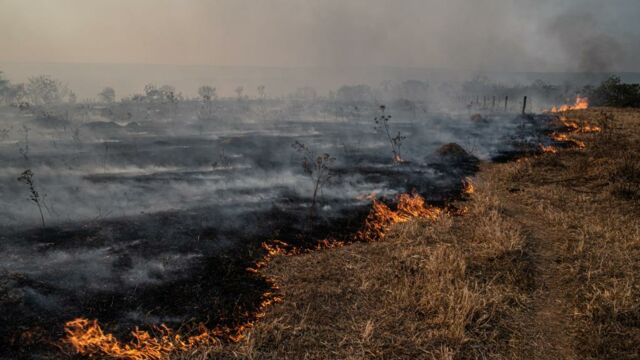The groundbreaking report carried out by the Intergovernmental Panel on Climate Change (IPCC) has warned that extreme weather events associated with global warming such as droughts, wildfires, flooding and intense heatwaves will soon reach new levels, as the key temperature limit could be broken in just a decade.
Discover our latest podcast
This year’s major climate change report is the first released from the IPCC since 2013 and involves an analysis of over 14,000 papers and 234 authors worldwide. All these authors have come together to echo the same sentiment: ‘it is unequivocal that human influence has warmed the atmosphere, oceans and land.’
Immediate action needs to be taken
The UN Chief called the report a ‘code red for humanity.’ However, scientists believe a global catastrophe could still be avoided if immediate action is taken and the world commits to making drastic cuts in greenhouse gas emissions.
UN Secretary General António Guterres supported the researcher’s claims stating:
If we combine forces now, we can avert climate catastrophe. But, as today's report makes clear, there is no time for delay and no room for excuses. I count on government leaders and all stakeholders to ensure COP26 is a success.
According to the report’s authors, since 1970, the world has experienced the fastest temperature increase in any 50 year time period in the last 2,000 years. The evidence of global warming is already apparent in the increasing, intensifying natural disasters the world is experiencing, such as wildfires, floods and heatwaves.
The new report also points out that thanks to harmful human activity, the warming we have already experienced has caused changes to planetary support systems that are irreversible on timescales of hundreds to thousands of years. Instead, we can expect oceans to become more acidic, and glaciers and polar ice will continue to melt for as long as decades to centuries to come. Additionally, 2m sea-level rise by the end of this century ‘cannot be ruled out.’
Professor Ed Hawkins from the University of Reading and one of the reports authors reiterated:
The consequences will continue to get worse for every bit of warming. And for many of these consequences, there's no going back.
One of the key points considered by the IPCC report is the achievability of the Paris Climate Agreement outlined in 2015. The agreement, which almost every nation on Earth signed up to, aims to keep global temperatures below 2C this century and maintain a temperature of under 1.5C.
However, after considering several emissions scenarios, scientists expect both these goals to be broken within the century, with temperatures hitting the 1.5C mark by 2040. And, if drastic actions aren’t taken, this target will be reached even sooner.
Dr Friederike Otto, from the University of Oxford, and one of the IPCC report's authors, commented: ‘We will see even more intense and more frequent heatwaves.’
And we will also see an increase in heavy rainfall events on a global scale, and also increases in some types of droughts in some regions of the world.
While the report seems to be full of damning news, there is still hope that if we can cut global emissions in half by 2030 and reach net zero by 2050, we can possibly prevent a rise in temperatures.
What other findings did the IPCC report?
Theclimate change report exposed the public to a number of anxiety-inducing realities, including:
- The past five years have been the hottest recorded since 1850.
- Rising sea level rates have tripled compared with the years 1901-1971.
- Carbon dioxide levels haven’t been as high in three million years.
- Methane concentrations have reached their highest in 800,000 years.
- Rises in both methane and carbon dioxide are well over the natural changes seen in previous millennia.
- Human activities have already led to a 1.1C rise in global temperatures over the last decade.
- There is strong evidence of climate change in every corner of the Earth
- The world could reach or exceed 1.5C warming over the next two decades, with global surface temperatures continuing to increase over the century.
- The Arctic is likely to be ice-free one September before 2050 in all predicted scenarios.
- There will be an increase in extreme weather events ‘unprecedented in the historical record’ even at a 1.5C warming. These extremes are also likely to be intensified at every extra 0.5C warming.
- As a result of both past and future warming, changes to ocean sea levels and melting ice caps and glaciers will be irreversible for tens, hundreds or even thousands of years.
- Fast and maintained reductions in methane would help slow global warming and even increase air quality.















